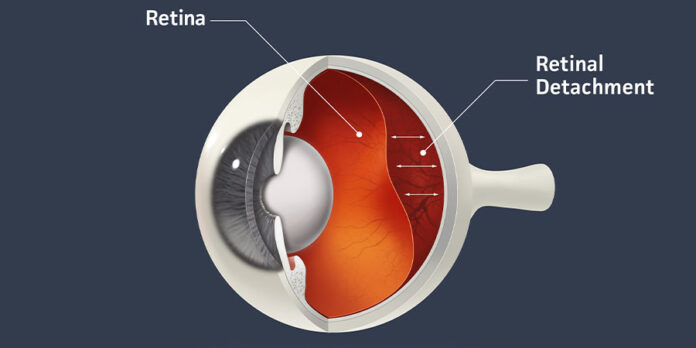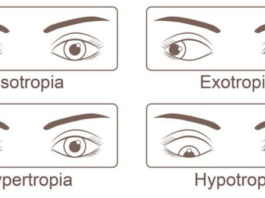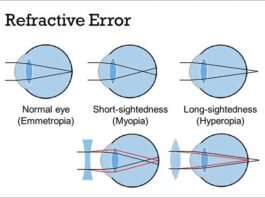Retinal detachment is an eye emergency and must be treated within a few days, otherwise, the vision will have a poor prognosis and there may even be no hope of regaining sight. Although retinal can occur after an injury, the direct cause of the detachment is often not easy to pinpoint.
Symptoms of Retinal Detachment
Retinal detachment is neither painful nor itchy. The patient suddenly feels the vision disappears or the color fades, sees a large black shadow or the image is distorted when looking at something. The precursor is seeing black spots, dark shadows, etc. Sometimes before your vision changes, you may see flashes of light and feel as if a curtain is blocking your vision. If you have the above symptoms, you should see a doctor immediately without delay.
People with myopia are more likely to suffer from this disease, and retinal may also occur after cataract-removal surgery. The retina is the light-sensitive membrane in the eyeball and has two layers. If the inner retinal layer breaks or has a hole, fluid can get between the two layers and pull them apart, causing a retinal detachment.
Treatment
It is not advisable to deal with it by yourself. You should see a doctor immediately for treatment. To treat retinal, you must seek treatment from an ophthalmologist with retinal specialist training. If left untreated, the detached retina will not recover. As long as retinal detachment is detected early, the success rate of surgery is over 75%. Exudative retinal detachment can be treated with conservative therapy, laser coagulation, or cryotherapy.
Prevention
If you find that you have vision problems or eye pain that are not related to myopia, it is best to seek a medical examination as soon as possible. Keeping your eyes healthy and not letting myopia worsen rapidly is also a positive approach to preventing retinal detachment.




